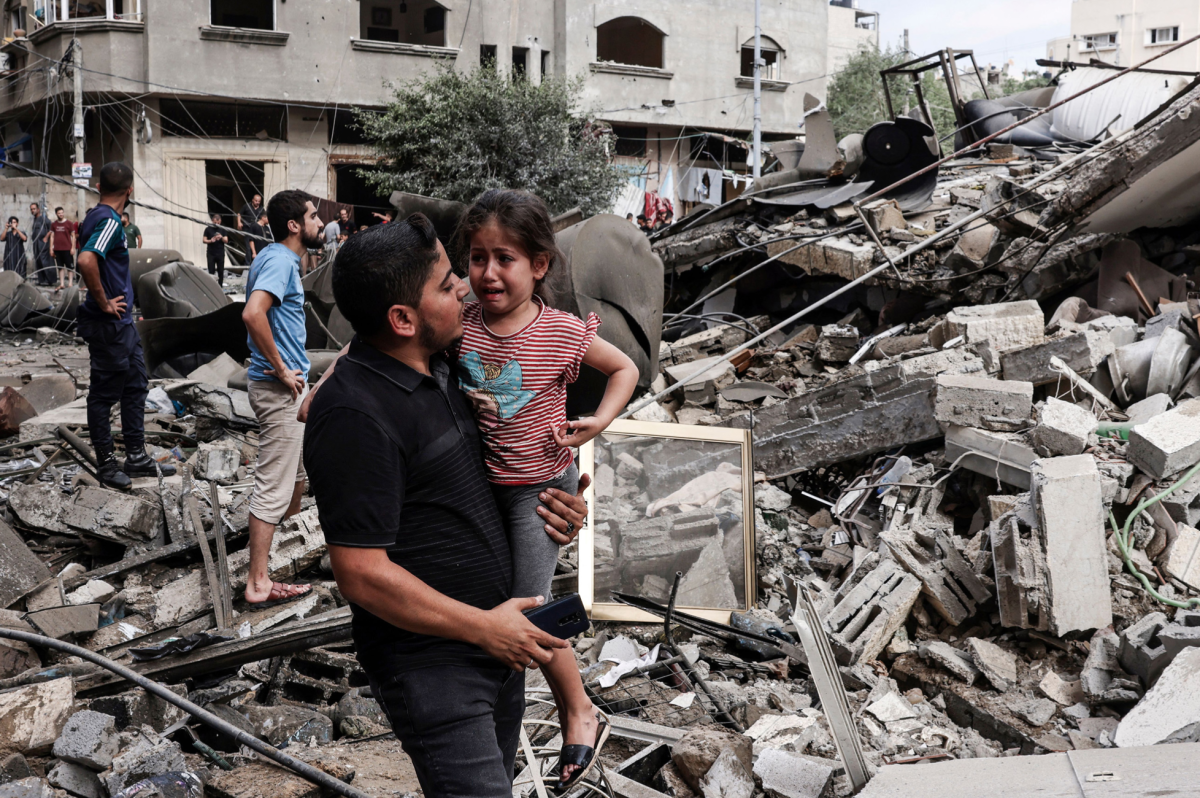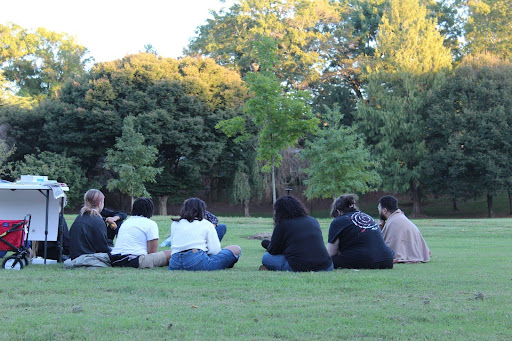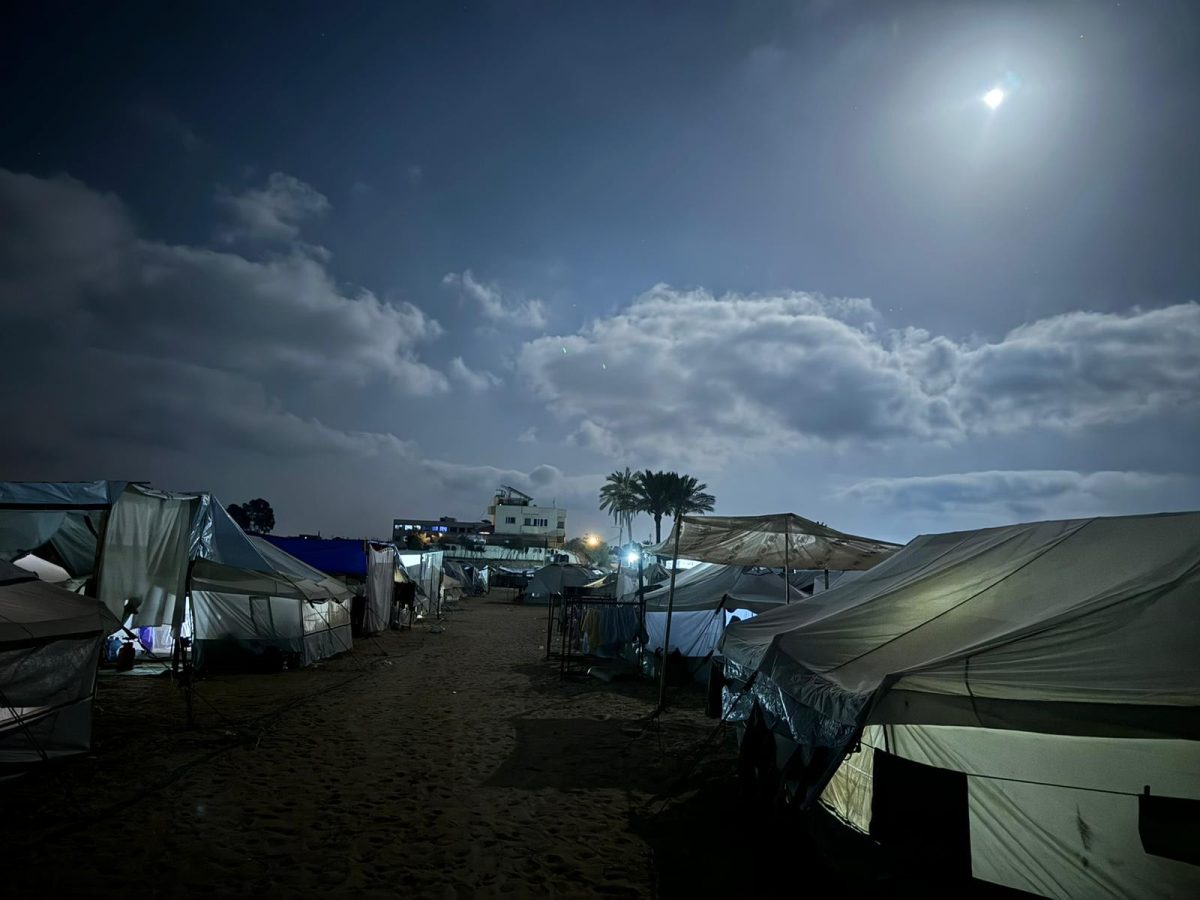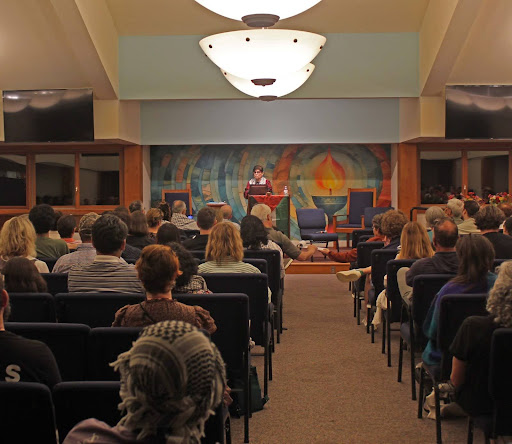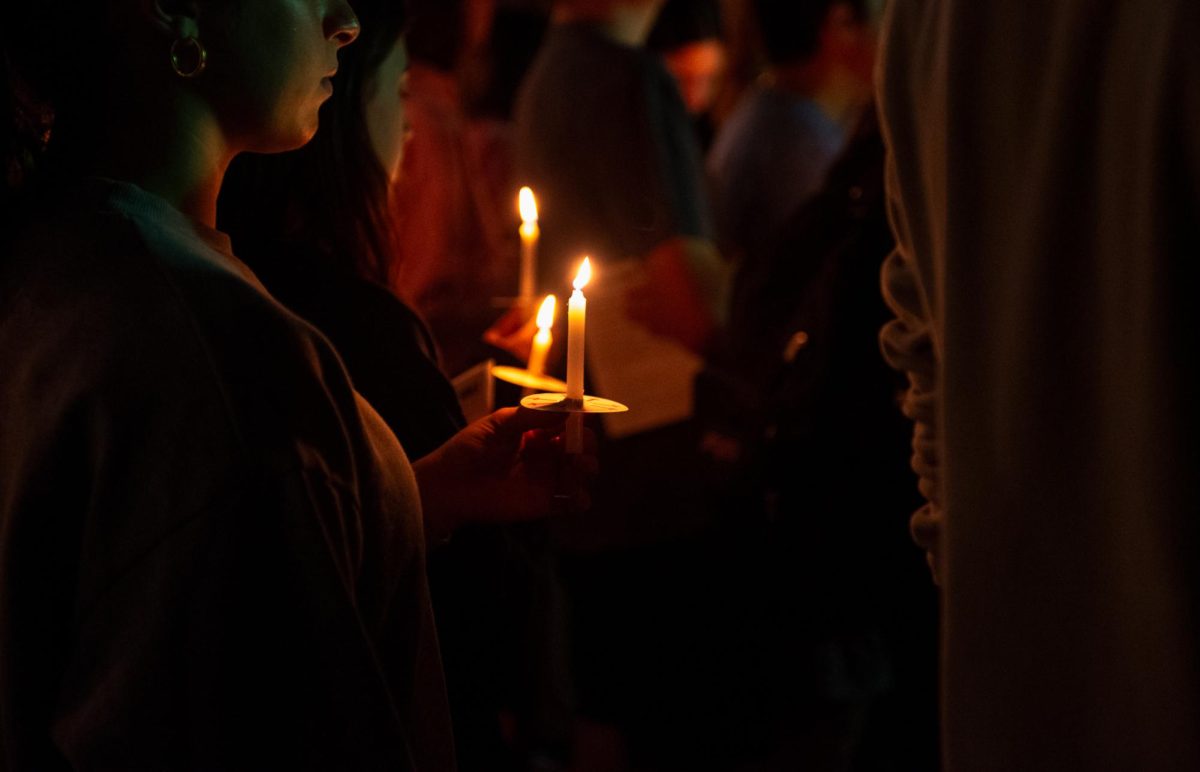The recent surge of violence in Israel and Gaza has brought global attention back to a longstanding issue that defies an easy resolution. While media organizations have labeled this a “conflict,” it should more accurately be described as “oppression, genocide, apartheid and colonization.”
The key to understanding this complex situation lies in history and identity. It’s regrettable that, without Israel portraying itself as a victim in this situation, the world would have remained silent –– as it has for more than half a century until now.
A brief history
This oppression is not a matter of religion but a matter of two groups claiming the same land. Contrary to popular belief, this conflict only goes back a century, starting in the 1900s. Around then, the regions along the eastern Mediterranean, which we now call Israel-Palestine, was part of the Ottoman Empire. This area was diverse, with a mostly Muslim and Christian population, with a small number of Jews. Even today, just more than two percent of the Palestinian population is comprised of Christians, which most people tend to overlook.So, what changed? In the early 20th century, the land that is now Israel and Palestine was under Ottoman rule. As the Ottoman Empire declined, the idea of Zionism, advocating for a Jewish homeland in the region, gained momentum. This movement predates the Holocaust and was supported by some in the Jewish community, although there were varying opinions and some strong opposition, particularly from socialist and anti-Zionist Jewish groups.
After World War I, British control (1917-1948) of the area, mandated by the League of Nations, led to an influx of Jewish migrants, altering the demographics and heightening tensions with the Arab population. This influx of Jews into the region, perceived by many Arabs as a European colonial movement, led to bitter conflicts. As the Jewish population grew from less than 10 percent in 1917 to more than 30 percent in 1947, Palestinian demands for independence escalated, culminating in a rebellion in 1937. In 1947, the United Nations recommended partitioning the land into separate Jewish and Arab states, leading to the establishment of Israel.
During this time, a significant shift occurred in the region. An increasing number of people in the area began identifying as Palestinians, forming a distinct national identity. Concurrently, more Jews were embracing Zionism, asserting that Judaism was not solely a religion but also a nationality deserving of its own homeland. This movement aimed to provide Jews with a secure place of refuge, especially considering centuries of persecution and culminating in the Holocaust.
As Jews sought a homeland, many Jewish refugees arrived in the region, holding banners that read, “The Germans Destroyed Our Families And Homes — Don’t You Destroy Our Hopes. ” These refugees were initially accepted by the Arabs.
Little did the Arabs know that this initial acceptance would sow the seeds of a genocide that would haunt their community for decades to come.
I strongly condemn Hamas for their actions, including the killing of innocent Israelis and the hostage situation involving Israeli civilians, including children. I call for the hostages’ immediate release. But I will not be starting every sentence with “Hamas is bad.”
Israel is committing genocide
With that out of the way, I would now like to talk about how Israel has been committing a genocide since 1948.
Article II of the 1948 UN Genocide Convention defines genocide as a crime committed with the intent to destroy a national, ethnic, racial or religious group, in whole or in part. The eviction of 750,000 Palestinians from their land in 1948, the Nakba, is a crime for which Israel and the world have yet to atone. This catastrophe occurred 75 years ago, when Zionist militias drove Palestinians from their homes, an act many describe today as ethnic cleansing. In late 1947, the UN General Assembly, under the Resolution 181, divided Palestine into separate Arab and Jewish states, a move the Palestinians saw as a clear infringement on their rights and thus rejected.
The Arab-Israeli war of 1948 resulted in Israel capturing 77% of Palestine, with the rest divided into what are now the occupied West Bank and the Gaza Strip, which led to a massive refugee crisis. Today, the Nakba continues with forced evictions and near-daily killings of Palestinians, committed by what many see as an apartheid state, all while the rest of the world stands by and watches.
The events on Oct. 7, 2023 illustrate native Palestinians reclaiming their land from Israeli settlers. This resistance, sometimes labeled as “militancy” or “terrorism” in the media, mirrors historical patterns. Like those who resisted apartheid in South Africa, an oppressed population subjected to prolonged military control is now asserting its rights.
Nobel Peace Prize winner and former South African President Nelson Mandela once expressed his perspective, stating, “If one has to refer to any of the parties as a terrorist state, one might refer to the Israeli government, because they are the people who are slaughtering defenseless and innocent Arabs in the occupied [Palestinian] territories, and we don’t regard that as acceptable.”
Given the ongoing Israeli settler aggressions, escalating tensions surrounding the Al-Aqsa Mosque compound driven by disputes over access and control, as well as the profound historical and religious significance of the site, coupled with the high Palestinian casualty rate due to Israeli military actions, it was inevitable for the Palestinians to respond forcefully.
The Gaza War in 2008-2009, termed Operation Cast Lead, saw 1,965 Palestinian fatalities and 43 Israeli deaths. In the 2014 Gaza War, known as Operation Protective Edge, 2,251 Palestinians lost their lives, while Israeli fatalities numbered just 73. Operation Pillar of Defense led to 105 Palestinians and only four Israeli deaths. There are numerous other examples from at least 27 unnecessary and unjust Israeli military operations that have resulted in significant loss of life.
Furthermore, the illegal, 16-year blockade of Gaza and the unlawful expansion of settlements on Palestinian lands have played a significant role in igniting this current crisis. Gideon Levy, a distinguished Israeli author who contributes to Israel’s largest newspaper Haaretz, recently wrote an article titled “Israel Can’t Imprison Two Million Gazans Without Paying a Cruel Price.”
If individuals within Israel can acknowledge its genocidal regime, then why is it difficult for the global community to comprehend it?
Israel’s recent actions
Israel’s recent actions, including a “complete siege” of the Gaza Strip and the alleged use of white phosphorus in densely populated areas, constitute further evidence of its ongoing genocidal actions. The use of white phosphorus violates the requirement under international humanitarian law to take all feasible precautions to avoid civilian injury and loss of life, according to Human Rights Watch. More than 300,000 Palestinians have been rendered homeless, and the tragic death toll has reached 1,417. Additionally, Israel has cut off access to basic necessities such as food, water, fuel and electricity, and the only power plant in the territory was shut down shortly thereafter, plunging Gaza’s 2.3 million residents into darkness.
Since then, humanitarian organizations have repeatedly cautioned that Gaza’s overwhelmed hospitals, already grappling with a 16-year blockade, were rapidly depleting their supplies of medicines and other critical necessities. After a one-hour meeting with President Biden, Israel has decided to allow aid into the region.
Occupied Gaza, often referred to as the world’s largest open-air prison, is experiencing a severe deterioration in living conditions. I wouldn’t describe it as a prison, as prisons typically result from committing specific offenses and have defined sentences. In this case, people have endured ongoing suffering for the past 75 years. This has led prominent figures, such as Colombia’s President Gustavo Petro, to even go as far as to characterize it as a concentration camp.
Is it completely justified for Israel to want to wipe out an ethnic group from the face of the Earth? Is Israel forgetting the horrors of the Nazi Holocaust? If Israel’s entire agenda is ethnic cleansing, then how are they any different than Hitler?
If this is not genocide, then I don’t know what is.
The views expressed in all opinion columns represent those of the article’s author, not the opinions of the Old Gold & Black Editorial Board.


